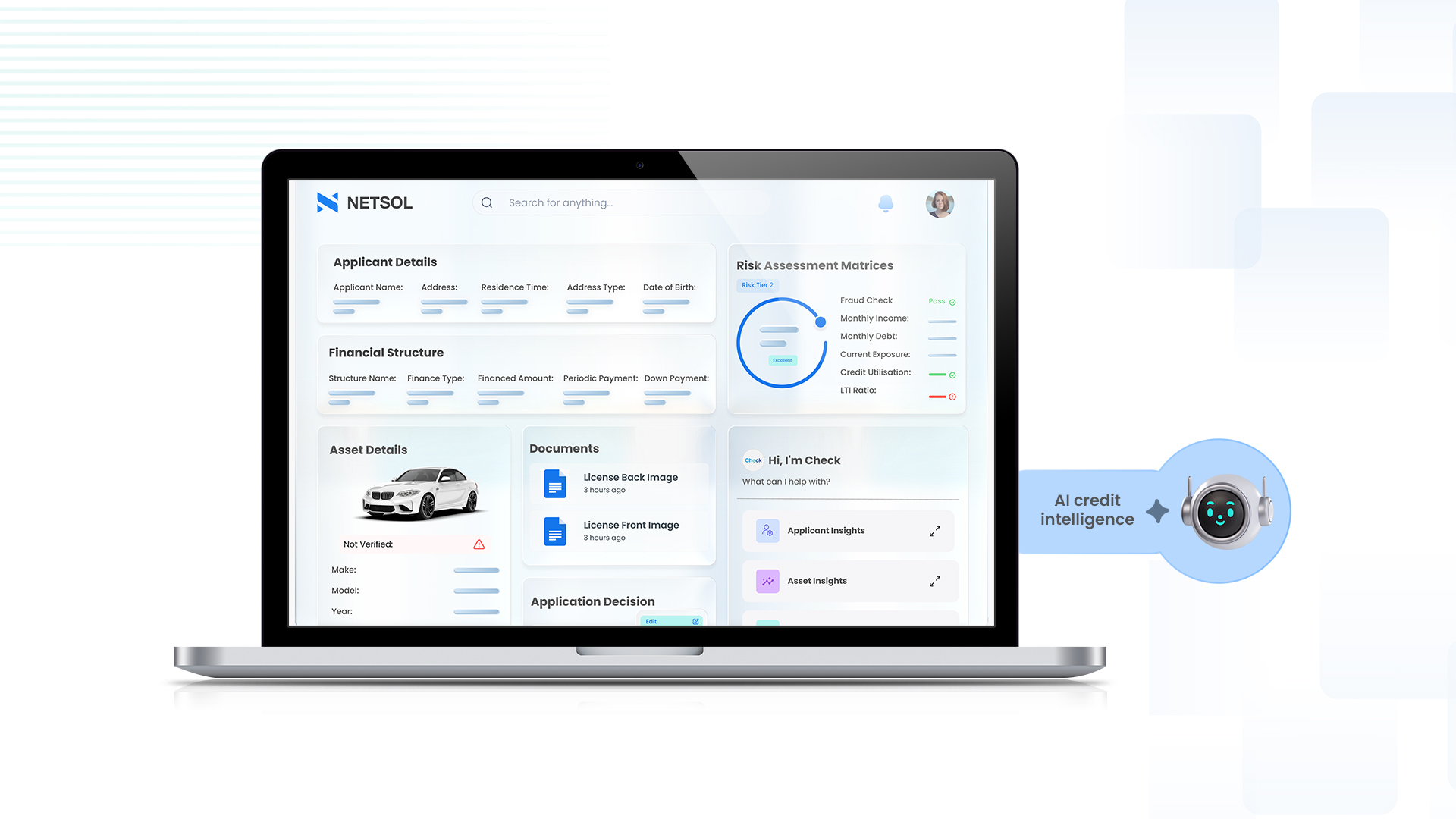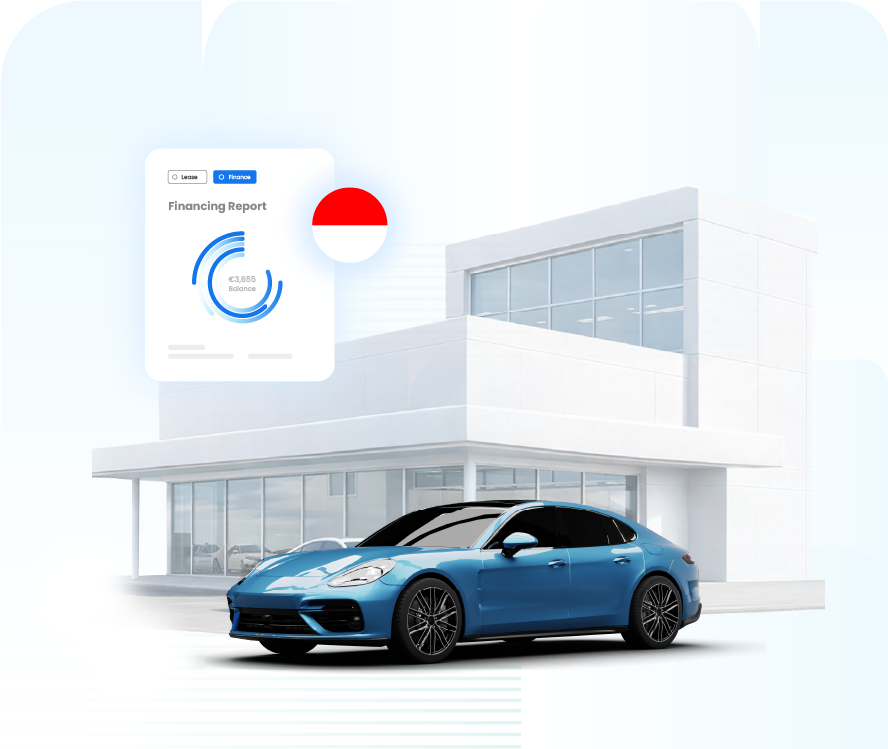Blog
Navigating EV residual value challenges in leasing: Key insights from NETSOL’s webinar
By NETSOL Technologies , on December 16, 2024
Explore the challenges of EV residual value in leasing and discover solutions with data, partnerships, and innovative models in NETSOL’s webinar.

Electric Vehicles (EVs) are revolutionizing the automotive industry, but with the rise of EVs comes a set of challenges for the leasing sector, particularly around the concept of residual value (RV). Recently, NETSOL Technologies hosted a compelling webinar discussing these challenges and offering potential solutions. Erik Wagner, CMO of NETSOL Technologies, and Eva Kellershof, Vice President of Sales North America and Europe, were the key speakers who shared valuable insights into the EV leasing space.
 "EV driving is a new way of driving, with massive acceleration capabilities. People are just not used to it, and this has inadvertently led to a lot more accidents.” – Eva KellershofVP of Sales, North America and Europe, NETSOL Technologies
"EV driving is a new way of driving, with massive acceleration capabilities. People are just not used to it, and this has inadvertently led to a lot more accidents.” – Eva KellershofVP of Sales, North America and Europe, NETSOL Technologies
In this blog, we delve deeper into the discussion, exploring the problems, challenges, and solutions highlighted during the webinar, while reflecting on leasing industry trends.
The problem: EV residual value and its impact on the leasing industry
The residual value (RV) of a vehicle is the estimated worth of a car at the end of its lease period. For traditional internal combustion engine (ICE) vehicles, residual values have been relatively stable, allowing leasing companies to predict depreciation rates and set leasing terms accordingly. However, the situation is different when it comes to Electric Vehicles (EVs).
 “We're topping now more than a million vehicles sold in 2023, and the trend is upwards so one can say it’s looking very bright. However, when you look back at the projections since 2020, the predictions were much more substantial in terms of adoption so something in the area of like 6.9 million units by 2025—certainly this number is clearly far out.” – Eva KellershofVP of Sales, North America and Europe, NETSOL Technologies
“We're topping now more than a million vehicles sold in 2023, and the trend is upwards so one can say it’s looking very bright. However, when you look back at the projections since 2020, the predictions were much more substantial in terms of adoption so something in the area of like 6.9 million units by 2025—certainly this number is clearly far out.” – Eva KellershofVP of Sales, North America and Europe, NETSOL Technologies
Unlike traditional vehicles, EVs come with unique challenges that impact their future value. These challenges stem from factors such as battery life, rapid technological advancements, and a lack of established historical data. This unpredictability can lead to significant risks for leasing companies, particularly when setting residual values.
According to industry experts, the average residual value for an EV after 3 years can be as much as 15-20% lower than a traditional vehicle. This is due to factors such as:
- Rapid technological advancements: Newer, more efficient EV models are introduced frequently, which can make older models less desirable in the secondary market.
- Battery degradation: While battery technology is improving, there is still uncertainty about how long EV batteries will last and how much they will degrade over time.
- Lack of consumer confidence: As EVs are still relatively new in the market, some consumers remain hesitant about leasing an EV due to concerns over long-term reliability and resale value.
Challenges faced by the leasing industry in setting EV residual values
 "Variable cost parity between EVs and traditional cars is many years away. A 32% price gap really makes it hard for customers to have a similar adoption in the ICE space as in the EV space. So, we are looking at a price difference between—$35,000 for ICE versus $53,000 for EV—makes adoption challenging." – Eva KellershofVP of Sales, North America and Europe, NETSOL Technologies
"Variable cost parity between EVs and traditional cars is many years away. A 32% price gap really makes it hard for customers to have a similar adoption in the ICE space as in the EV space. So, we are looking at a price difference between—$35,000 for ICE versus $53,000 for EV—makes adoption challenging." – Eva KellershofVP of Sales, North America and Europe, NETSOL Technologies
The leasing industry faces several unique challenges when setting EV residual values. During the webinar, Eva Kellershof, VP of Sales, highlighted some of these key hurdles:
- Uncertain Depreciation Rates: Since EVs are still a relatively new technology, predicting how quickly they will depreciate is difficult. Leasing companies often rely on historical data to set residual values, but this data is sparse with EVs.
- Rapid Advancements in Technology: As EV technology improves at a rapid pace, older EV models quickly become outdated. This accelerates depreciation rates, making it challenging for leasing companies to forecast residual values over a vehicle’s lifecycle accurately.
- Battery Lifespan and Performance: The performance and longevity of EV batteries are a significant concern. Battery technology is improving, but there is no clear consensus on how EV batteries will perform over time, especially when exposed to the wear and tear of daily driving.
- Shifting Consumer Preferences: Consumer demand for EVs is growing, but leasing companies need to account for potential shifts in consumer preferences and behaviors. For instance, if newer EV models offer more features or improved performance, older models may lose their attractiveness in the market.
 "There is also an asymmetry between the demand of urbanites versus the rural ones where in the rural areas you probably need fast charging networks whereas in cities you look for non-residential and residential charging opportunities and that's a topic that's still spurring the debate today." – Eva KellershofVP of Sales, North America and Europe, NETSOL Technologies
"There is also an asymmetry between the demand of urbanites versus the rural ones where in the rural areas you probably need fast charging networks whereas in cities you look for non-residential and residential charging opportunities and that's a topic that's still spurring the debate today." – Eva KellershofVP of Sales, North America and Europe, NETSOL Technologies
Solutions to address EV residual value challenges
We have to look at more advanced strategies that mitigates the risk of EV residual value depreciation.
– Eva Kellershof, VP of Sales, North America and Europe, NETSOL Technologies
During the webinar, various strategies were discussed that can help mitigate the challenges related to EV residual values. These solutions provide valuable insights for companies in the leasing space looking to navigate the evolving market dynamics:
- Improved Data and Forecasting Models: Eva Kellershof emphasized the importance of leveraging data-driven tools to predict EV residual values more accurately. By using advanced analytics AI, and machine learning, leasing companies can better forecast the future value of EVs, taking into account factors such as battery performance, market trends, and technology advancements.
- Partnerships with EV Manufacturers: Eva also highlighted the importance of establishing partnerships with EV manufacturers to gather more accurate information about vehicle performance and expected resale value. This information allows leasing companies to make more informed decisions about setting residual values.`
- Battery Leasing Options: One innovative solution discussed during the webinar was battery leasing. Instead of including the battery in the vehicle’s residual value, leasing companies could separate the battery from the vehicle lease. This would allow the battery’s depreciation to be managed separately, reducing the financial risk for leasing companies.
- Flexible Lease Terms: The webinar also discussed the potential for more flexible lease terms for EVs. By offering shorter lease periods (2-3 years), leasing companies can reduce their exposure to the risks associated with residual values. This would allow for more frequent fleet turnover and the ability to adjust residual values based on market conditions.
Key takeaways
 "Not only the early adapters are taking over EVs but it’s really going to be a mass-market phenomenon." – Eva KellershofVP of Sales, North America and Europe, NETSOL Technologies
"Not only the early adapters are taking over EVs but it’s really going to be a mass-market phenomenon." – Eva KellershofVP of Sales, North America and Europe, NETSOL Technologies
The webinar provided valuable insights into how the leasing industry can address the growing challenge of EV residual values. Here are the key takeaways:
- Data is essential: Leveraging advanced data analytics, deep learning and forecasting tools is critical to accurately predicting EV residual values and reducing risk.
- Innovation in leasing models: Exploring new models, such as battery leasing and more flexible lease terms, can help mitigate residual value challenges.
- Collaboration with manufacturers: Strong partnerships with EV manufacturers can provide leasing companies with the data and insights needed to make informed decisions about residual values.
- Shifting market dynamics: With EV technology evolving rapidly, leasing companies must remain agile and adjust their strategies to account for changing market conditions.
More highlights from the webinar
- The electric vehicle market is growing rapidly, with global sales increasing year-on-year.
- Charging infrastructure remains one of the biggest hurdles to widespread EV adoption.
- Consumer concerns like range anxiety and cost are being addressed through advancements in battery technology and vehicle design.
- Sustainability in EV manufacturing and materials sourcing is crucial for long-term success.
- Governments play a critical role in accelerating EV adoption through policies and incentives.
- The next decade will witness significant technological advancements in EVs, including autonomous driving and smart grid integration.
Shaping the future of EV leasing
The discussion carried out during the webinar highlighted the unique challenges of setting residual values for Electric Vehicles. As the EV market continues to grow, leasing companies must adapt and innovate to stay competitive. By leveraging data, forming strategic partnerships, and exploring new leasing models, the industry can overcome these challenges and pave the way for a more sustainable and profitable future for EV leasing.
As the EV market matures, we can expect residual values to stabilize, but for now, proactive strategies are key to navigating this dynamic landscape.
Stay tuned for more insights!
If you missed the webinar, be sure to watch it here. The future is electric, and we're here to help you stay ahead of the curve!
Want to dive deeper into the electric vehicle revolution? Subscribe to our newsletter and stay up-to-date on the latest developments in EV technology, infrastructure, and policy.
Related blogs

Blog
From credit checks to credit intelligence: How AI is redefining underwriting for captives

Blog
Shared financing models for high-value assets unlocking Indonesia’s next wave of growth

Blog



